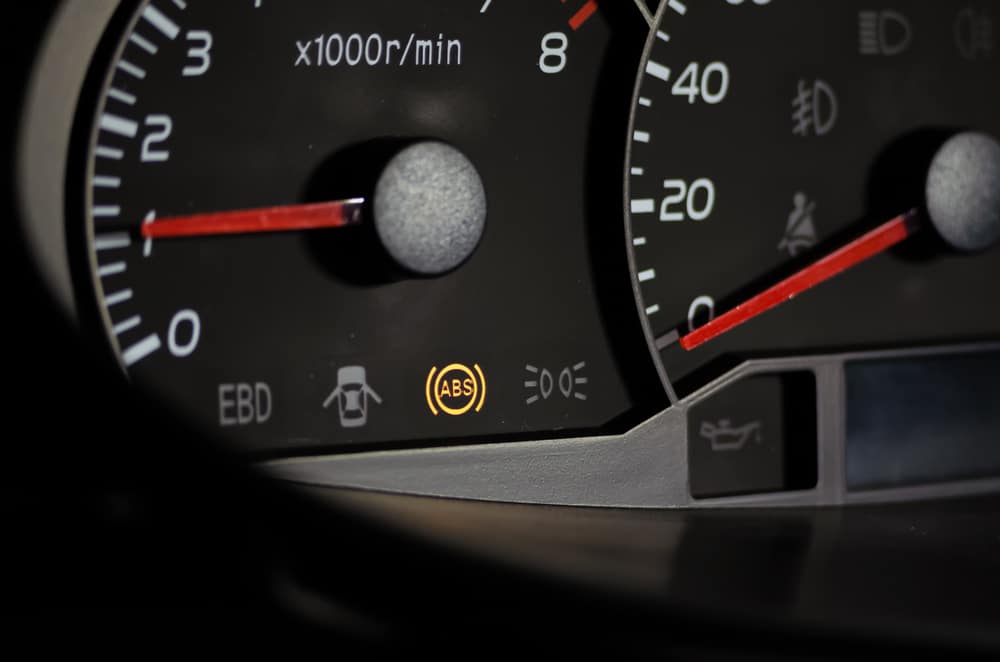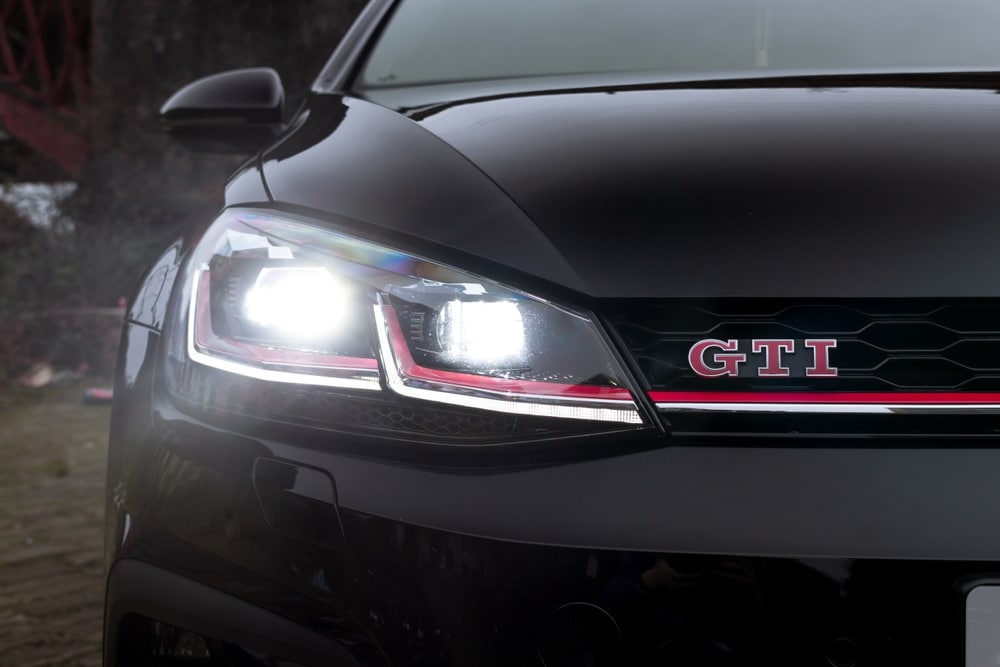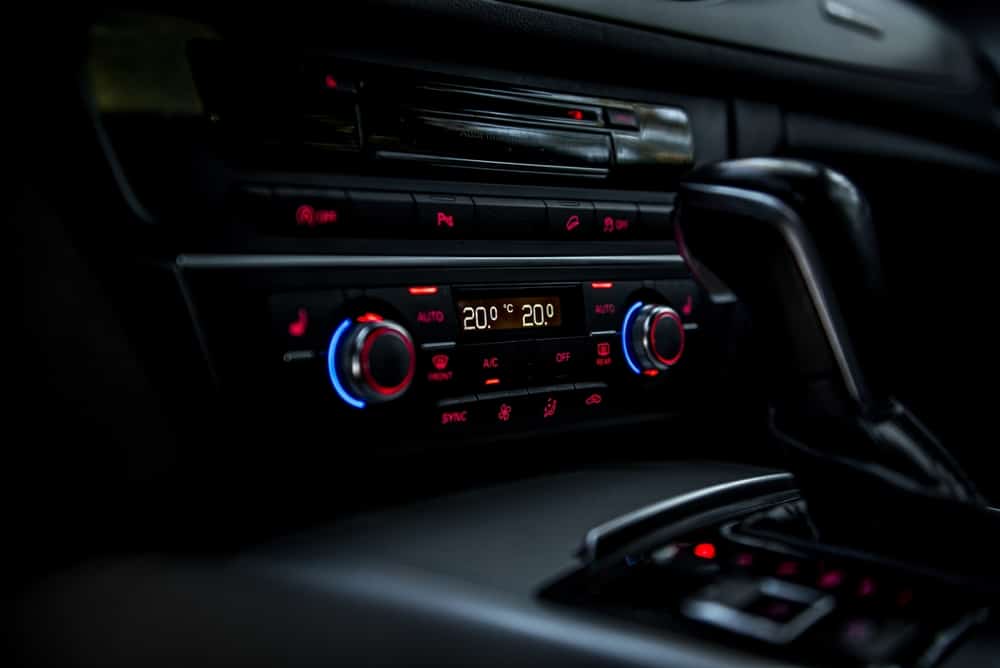Anti-Lock Brakes
You’re travelling along a busy stretch of the M6 near Wigan when the vehicle in front suddenly brakes hard. You stamp on the brake pedal, but instead of coming to a controlled stop, the wheels seize, the tyres shriek, and the car veers sideways. You can’t steer, and everything happens too fast. In that split second before the impact, one thought flashes through your mind: “I should’ve had that ABS light looked at.” It had been there for a while. You kept meaning to sort it. But now the damage is done, and not just to your car.
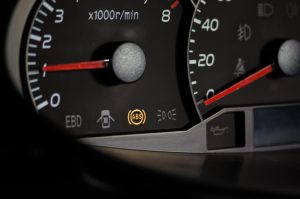
The anti-lock braking system, or ABS, is there to help you maintain control in situations exactly like this. It doesn’t just reduce stopping distance; it helps you steer while stopping. And when the system fails, those few crucial feet of grip could be the difference between a near miss and a collision.
At Standish Service Station, we’ve supported countless drivers across Wigan and Bolton with ABS-related faults. We understand how the system works and how to restore it properly. So if that ABS warning light is illuminated, don’t put it off. This is not a simple fix. It’s a sophisticated network of mechanics, sensors, valves and control units that needs specialist attention.
In this blog, we’ll explain exactly what ABS does, how it reacts in real-time, and when to get it checked.
Let’s take a closer look.
What Anti-lock Brakes Are Designed to Prevent
The anti-lock braking system (ABS) is designed to stop your wheels from locking up during intense or emergency braking. Its main function isn’t necessarily to shorten your stopping distance, but to make sure you can keep control of the vehicle as it slows down.
Without ABS, hitting the brakes hard can cause one or more wheels to lock in place, throwing the car into a skid. In that moment, your tyres lose grip, and with that, you lose the ability to brake or steer effectively. If you’re trying to swerve around a hazard or avoid a crash, that sudden loss of control can be catastrophic. ABS prevents this by adjusting brake pressure rapidly and repeatedly at each wheel, helping to keep them rotating just enough to maintain traction.
It’s a vital safety system designed to support the driver when fast decision-making and firm braking collide.
How Anti-lock Brakes Respond When Grip Is at Risk
Today’s anti-lock brake systems are constantly monitoring, ready to react in the background whenever conditions demand it. During normal driving, the system stays dormant. But the moment a wheel is about to lock under braking, ABS engages automatically.
Each wheel is fitted with a dedicated speed sensor that tracks how fast it’s rotating. This data feeds into the ABS control unit, which compares all four readings in real time. If one wheel starts to decelerate too sharply, indicating it’s close to locking, the system steps in. It adjusts the brake pressure on that wheel through a series of electronically controlled valves inside the ABS modulator. Pressure is released just enough to allow the wheel to regain grip. As soon as traction returns, pressure is reapplied. This cycle repeats many times every second, far quicker than any driver could do manually.
If ABS activates, you’ll likely feel a rhythmic pulsing under your foot as the brake pedal vibrates. This is perfectly normal. It’s the system regulating brake force to help keep your tyres connected with the road and reduce the risk of a skid.
If a fault occurs, whether in the ABS sensor, modulator, valve, or wiring, the process can break down. That’s when the ABS warning light comes on. When it does, call Standish Service Station on 01257 422899 and let us get to the root of the issue.
Where Anti-lock Brakes Are Found in Your Vehicle
Your ABS system is made up of several interconnected components, each playing a critical role in keeping your wheels turning under pressure. Here’s where you’ll usually find them:
Wheel speed sensors – Positioned at each wheel, often beside the brake discs or hubs. These sensors track how fast each wheel is spinning and send that data to the ABS control unit.
ABS control unit (ECU) – Normally located in the engine bay, this electronic controller continuously analyses the wheel speed readings and decides whether brake pressure needs adjusting.
Hydraulic modulator or ABS pump – Also housed in the engine compartment, this part manages brake fluid pressure when ABS is active. It uses internal valves and a pump to rapidly hold, decrease, or restore pressure in quick succession.
Brake valves and hydraulic lines – Built into the ABS modulator, these parts allow the system to fine-tune brake force. During heavy braking, they open and close in rapid cycles to stop the wheels from locking and help keep the car stable.
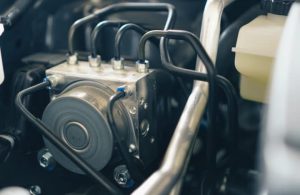
At Standish Service Station, our trained technicians know exactly how each component in your anti-lock braking system operates. If your ABS light is showing or braking feels unusual, call us on 01257 422899. And for more insight into your braking system, check out our blogs on Brake Pads, Brake Discs and The Braking System Explained.
The Stability Systems That Depend on Anti-lock Brakes to Work
Anti-lock brakes don’t operate in isolation. On most newer vehicles, ABS acts as the foundation for several integrated stability features that keep your car balanced under pressure. These systems all rely on live feedback from the ABS sensors to respond effectively.
Here’s what each system does:
Electronic Brakeforce Distribution (EBD) – Adjusts the braking load between the front and rear axles depending on vehicle weight and speed. This helps prevent rear-wheel lockup and improves balance during sudden stops.
Traction Control (TCS) – Kicks in when a wheel starts to spin under acceleration. It gently applies brake pressure to the slipping wheel and may reduce engine power until grip is regained.
Electronic Stability Programme (ESP) – Helps prevent the vehicle from veering off course. By applying brake force to individual wheels, it works to counteract skids during evasive manoeuvres or sharp turns.
Each of these systems depends on real-time data from the ABS. If your ABS isn’t functioning correctly, their effectiveness can be compromised too.
At Standish Service Station, we understand how these safety networks operate. If your ABS warning light is on or something doesn’t feel right when braking, give us a call on 01257 422899.
What Can Stop Your Anti-lock Brakes from Working Properly
Anti-lock brakes are built to help you stay in control when braking becomes critical. But their performance depends on accurate sensor readings, healthy components, and suitable road conditions. When one of these elements is compromised, ABS effectiveness can decline fast.
Difficult surfaces are a key challenge. On loose gravel, icy roads, or snow, ABS can struggle to maintain grip. While the system can still assist with steering, it can’t override physics. Driving cautiously in these conditions is always essential.
Mechanical or electrical faults also pose a risk. If even one sensor provides inaccurate data or the modulator fails to react quickly enough, the system may not activate when needed. That’s often when the ABS warning light appears.
At Standish Service Station, we’ve seen how quickly these issues can escalate. If your ABS light is on, we recommend booking in immediately. Our expert team will carry out a full technical evaluation and pinpoint the problem before it puts your safety at risk.
Signs That Your Anti-lock Brakes Are No Longer Working
When your ABS isn’t functioning correctly, you might not notice any difference during gentle braking. But in a sudden stop, that missing support can make all the difference.
Here are the key signs to look out for:
The ABS warning light stays on
It’s normal for the ABS light to appear briefly when you start the car. That’s part of its self-test. But if it remains lit while you’re driving, the system has flagged a fault. Standard braking will still work, but the anti-lock protection may be disabled. This is a serious issue. Call us on 01257 422899 for immediate attention.
No ABS feedback under hard braking
If you slam on the brakes and the wheels lock, or you don’t feel any pulsing in the pedal, the ABS may not be operating. That vibration is usually a sign that the system is active and modulating pressure correctly.
Multiple warning lights on the dashboard
A problem with an ABS sensor or control module can also trigger the main brake warning light. If both are showing, it indicates a wider issue with your braking system and shouldn’t be ignored.
If you spot any of these signs, call Standish Service Station on 01257 422899. We’ll carry out a full ABS system check and fix the fault before it affects your safety.
Why You Shouldn’t Ignore Brake or ABS Warning Lights
It’s easy to overlook a dashboard warning if your car still seems to drive normally. But with systems like ABS, that little light could be your only indication that something critical isn’t working.
When the ABS light comes on, the system has detected a fault. You’ll still have your regular brakes, but the anti-lock function will no longer be available. That means no brake pressure regulation, no support to help you steer under heavy braking, and no safeguard if a wheel locks at speed. You might not notice any difference on a dry, steady drive through Wigan, but in an emergency, especially on wet or uneven roads, the risk rises sharply.
The warning light could be caused by anything from a faulty ABS sensor to a hydraulic or electrical fault within the system. Once it’s triggered, the ABS may switch off as a safety precaution until it’s properly repaired and reset.
There’s also the MOT to think about. If the ABS warning light is on, your car will fail the test. And if the brake warning light is showing too, that’s another serious safety issue that can’t be ignored.
At Standish Service Station, we’ve seen how fast a minor fault can become a major one. If your dashboard is warning you, call us on 01257 422899 and let our team take a look before it turns into something worse.
Trust Standish Service Station in Wigan With Any ABS Issue
Your ABS is one of the most important safety systems on your car. When it’s working as it should, you may not even notice it. But if something goes wrong, your anti-lock braking system could be the difference between staying in control and losing it.
At Standish Service Station, we specialise in identifying and repairing ABS faults quickly and professionally. Our technicians are highly trained, and we work with the latest diagnostic tools to pinpoint issues fast, without guesswork.
With Standish Service Station, you get:
- Specialist ABS knowledge and experience
- Straight-talking advice you can rely on
- 12-month parts and labour guarantee
- Courtesy car available while your vehicle’s in
- Friendly service from a trusted Wigan garage
Call us today on 01257 422899 to book a full ABS system check or ask about your ABS warning light. We’re here to help you drive with confidence, across Wigan, Bolton, and beyond.
